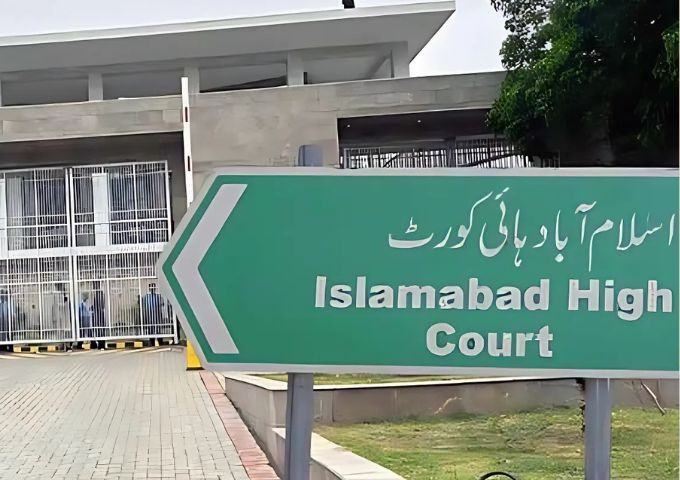
Five Islamabad High Court (IHC) judges have refused to accept Justice Sardar Sarfraz Dogar as a judge of the IHC, raising alarms over his seniority and the legitimacy of his appointment, urging the IHC chief justice to remedy the situation before the crucial Judicial Commission of Pakistan (JCP) meeting.
In a representation submitted to IHC CJ Aamer Farooq, Justices Mohsin Akhtar Kayani, Tariq Mehmood Jahangiri, Babar Sattar, Ejaz Ishaq Khan and Saman Rafat Imtiaz argued that Justice Dogar cannot be considered an IHC judge until he takes the oath as required under Article 194 of the Constitution.
"The process of Justice Dogar's appointment as judge of Islamabad High Court is however not com-plete, for he has yet to be sworn an oath to serve on the Islamabad High Court as Article 194 makes necessary. Consequently, he cannot be considered a Judge of the Islamabad High Court," it read.
The lawyers argued that once Justice Dogar takes his oath as a judge of the IHC, his seniority will need to be determined from the date on which the oath is administered to him by the IHC CJ. Therefore, Justice Dogar will be lower in seniority than the undersigned judges who took their oaths before him.
The judges have urged the IHC chief justice to resolve the matter before the JCP meeting scheduled for February 10.
"We are endorsing a copy of this representation to the Hon'ble Chief Justice of Pakistan, in his capacity as Chairman JCP, to bring the matter to the attention of JCP, lest the legality of proceedings conducted by JCP on 10.02.2025 also be marred due to consideration of judges for appointment to the Supreme Court from an illegally and erroneously constituted panel of judges from Islamabad High Court," the judges contended.
They argue that a judge's assumption of office is contingent upon taking an oath under Article 194, which grants judicial authority within the jurisdiction of the respective high court.
The oath does not permit him/her to serve beyond this territorial jurisdiction, they further contended.
The representation also noted that Justice Dogar has yet to take an oath as an IHC judge and has only been sworn in as a Lahore High Court judge. However, the IHC's seniority list already lists him as an IHC judge, placing him directly below the chief justice.
"This demonstrates a serious jurisdictional error, for a Judge cannot be considered to have been ap-pointed to a high court, till he takes the oath for that particular high court."
'Brazen attempt to pack the court'
Commenting on the development, lawyer Abdul Moiz Jaferii said the inclusion of judges from Sindh and Balochistan was mere "window dressing," asserting that the real issue revolves around Justice Dogar's appointment.
"This is just about Justice Dogar and using him to interrupt seniority in the IHC and to deprive inde-pendent-minded judges of their deserved station within that court."
Jaferii criticised the IHC chief justice, saying he has been at odds with a majority of his own judges.
He noted that for years, the IHC has been run by a CJ who has let down his colleagues and helped the powerful circles brush their claims of interference under the carpet.
"This is something the government cannot afford to lose," he noted, adding that the government was trying to manipulate the IHC's seniority structure, using "federal representation" as an excuse.
"The IHC already has federal representation. There are judges from Karachi, Swat and Quetta. The Quetta judge last complained of his father being brought and stood before him as a coercive meas-ure," he pointed out.
Jaferii questioned why the government opted for transferring serving judges instead of appointing fresh candidates from Sindh and Balochistan.
"If it was about affirmative action, there have been lists submitted for the Sindh High Court and the Balochistan High Court where candidates could not make the cut. These candidates could have been considered for fresh appointments to the IHC. Why did it have to be serving judges? And what have these judges done to deserve such transfers ahead of their peers?"
Terming the move a "shambolic and brazen attempt to pack a court," he expressed shock over the chief justice of Pakistan's role in legitimising it.
"It is shocking that the chief justice of the country is joining in to celebrate it as some gesture of inclu-sivity," the lawyer added.
Similarly, lawyer Hasan Mann asserted that the Constitution provided only one procedure for the ap-pointment of a high court judge – through the prescribed initial appointment process, with no alterna-tive.
He explained that while Article 200(1) allowed for the transfer of a high court judge from one high court to another, such a transfer cannot be permanent, as the president has no authority to appoint a high court judge through transfer.
Furthermore, Mann pointed out that Article 200(1) cannot be read in isolation, as Article 200(2) clari-fied the temporary nature of such transfers. Any interpretation suggesting otherwise would effective-ly grant the president the power to manipulate the seniority of high court judges, contradicting the Supreme Court's 2014 verdict.
If a high court judge were transferred permanently, he would be placed at the bottom of the seniority list, as is the case in civil services. Any other arrangement, Mann argued, would create chaos in the su-perior judiciary.
This is why the transferee judge's consent was essential, as such a move could put him at a disad-vantage.
He added that comparisons with the Indian judiciary are irrelevant, as the provisions of the Indian Con-stitution are worded differently.
Administrative reshuffle in IHC
Meanwhile, following the addition of three new judges, the IHC chief justice has made several admin-istrative changes.
Justice Sardar Sarfraz Dogar has been appointed as the administrator of anti-terrorism courts (ATC) and national accountability courts, replacing Justice Mohsin Akhtar Kayani.
Justice Muhammad Azam Khan has been appointed as the administrative judge for Islamabad's district courts (West), Justice Arbab Muhammad Tahir has been given charge of the FIA courts, and Justice Saman Rafat Imtiaz has been appointed as the administrative judge of the banking courts.

1730360426-0/Menendez-Brothers-(2)1730360426-0-405x300.webp)





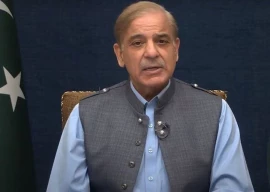


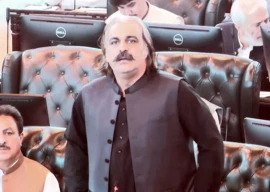


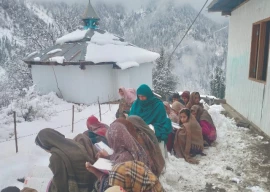







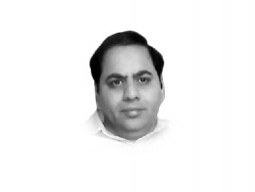


COMMENTS
Comments are moderated and generally will be posted if they are on-topic and not abusive.
For more information, please see our Comments FAQ